Cookies, fruits, coffee, chillies, peanuts, limes and of course the evergreen chocolate and vanilla, they all find their way into the ice creams at Amadora. What is the secret behind their popularity?
(December 3, 2023) Ice creams and cakes are always irresistible, no matter what age you are or which part of the world you live in. And making a successful business of both these universal and perennial favourites is Deepak Suresh with his brand of artisanal ice creams and more called Amadora Gourmet Ice Cream.
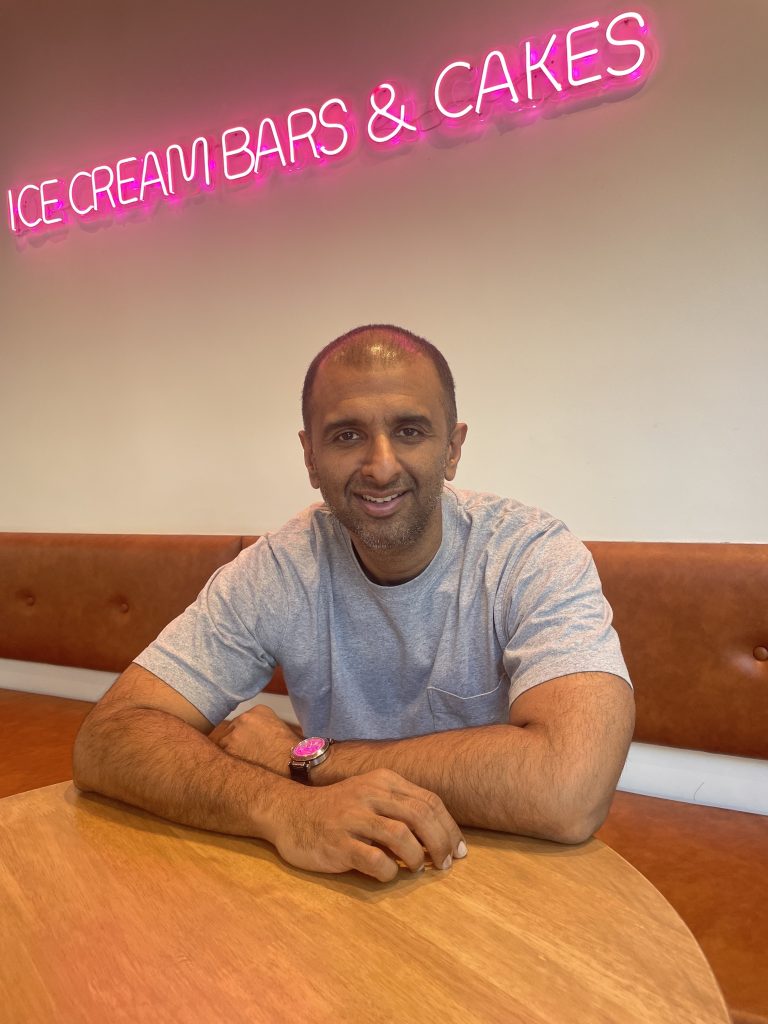
Deepak Suresh, founder, Amadora
Like a lot of engineers these days, Deepak changed career trajectories and after an MBA in Spain where he fell in love with food and everything around it. After a stint in the corporate world, he decided he wanted to be in the culinary field. The engineer in him zeroed in on ice creams from the start. In an exclusive with Global Indian, Deepak says, “The process of manufacturing ice creams is process driven, as opposed to a biryani, which is formula based. If you have good ingredients, and can create flavours and the right texture that will appeal, along with your imagination, ice creams were the obvious choice for me.”
The Right Choice
Another reason for choosing ice creams was the fact that Deepak associated a lot of happy memories of his own childhood in Chennai with ice creams. He recalls, “As kids we used to go to Das Prakash for ice creams and they had this ice cream sandwich with cake all around it. They were always fantastic and we loved going there.”
He also reveals that he found a big gap between the store-bought range of ubiquitous ice creams like Amul, Kwality Walls and others, and the premium range like Haagen Daaz. His price points too are placed between these two ranges and given the high quality of ingredients used, including Belgian chocolate in larger quantities than his competitors do, they seem worth the price.
Having lived in the US where he had done his Master’s degree in Computer Engineering from Syracuse University, he decided to return to India to start the business. He did his research and launched the brand Amadora Artisan Ice Creams Pvt. Ltd, in June 2011. “By March 2012, we were winging it.”
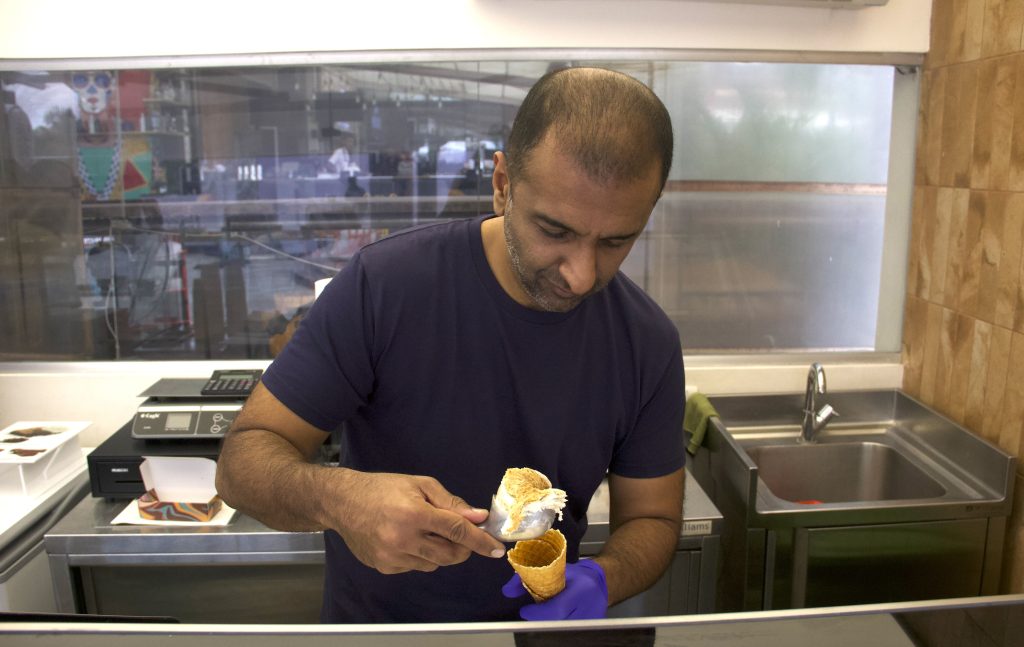
I dream of ice cream
From the outset, Deepak implemented engineering principles to streamline production processes, emphasizing precision and consistency in every scoop he served up at Amadora. He also decided to do a week-long course in ice cream making at the University of Pennsylvania in the US. “It was more a scientific course, focusing on the pasteurising and ageing process and other aspects. It was too much science,” he adds candidly.
Candour in fact is the underlining trait with which Deepak speaks because he openly talks about what worked, what didn’t and why he makes ice creams in the flavours that he does. He says, “I make the flavours I like. The most important part of an ice cream is the mix – if you get the mix right, whether it is vanilla, coffee, chocolate or pineapple, the rest is easy. Perfecting the mix is the most difficult part about making an ice cream.”
To date, Amadora has made over 300 flavours of ice creams and sorbets, like frozen hot chocolate, trifle pudding, mango raspberry, roasted banana, peanut butter and hot fudge and plenty more. There is even a chilli cheese toast flavour for the adventurous! The range also includes ice cream sandwiches and ice cream bars; and ice cream cakes and sundaes. Each outlet stocks 16 ice cream flavours and 14 cake varieties. And the sorbets work for the vegans because they are made without any milk, cream or egg.

Baked goods too got added to the menu and a popular item is the under-baked cake. Deepak says, “To go with ice creams, I started making brownies. During one baking attempt, we made a baked bar that came out under-baked and it tasted amazing. So, we decided to market it as an under-baked cake and it is one of our most popular items.”
For the ingredients, Deepak believes in zero compromise. The five-bean vanilla ice cream for instance, one of their bestsellers, has a story to it. Deepak recalls, “When I created the vanilla ice cream, I was looking for authentic vanilla beans. I met Dr Mahendran in Polachi in Tamil Nadu; his beans are the best we felt, and each litre of ice cream made had the intensity of five vanilla beans; hence the name Five Bean for the ice cream. I have been buying from him for the last ten years.” The milk he uses for the ice creams are Amul and Nandini.
Hits and Misses
Flavours are the hall mark of Amadora and Deepak says they launch a new flavour a week. Between the sorbets and the ice creams, Amadora has over 300 flavours created. But, Deepak himself admits that some of them were “horrible.” He reiterates with candour not usually found in his line of business, “We once received some gajar halwa from my wife’s family in Jagraon, Punjab. It was amazing and I had it with vanilla ice cream. But when I tried to recreate the flavour as an ice cream, it didn’t do well. Similarly, we got some freeze-dried jackfruit powder. Again, we made it into an ice cream and I personally thought it was an incredible flavour, but it did not do well at all.”
The popular flavours are vanilla and chocolate in all its variants – they are the top sellers. Another hit with customers is the Mami’s filter coffee ice cream which for Deepak, coming from Chennai, was a no-brainer and had to be part of the oeuvre. Caramelized White Chocolate, Dark Chocolate Sorbet, Vanilla Caramel Crunch, Strawberry Shortcake etc are some of the other choices. Even the cakes are fast becoming popular and now account for 30 percent of Amadora’s business.
And while Deepak, candidly again, admits that he has had “tremendous amounts of luck in finding the right location, architect and good staff, towards starting what is predominantly a self-funded business, labour remains a challenge as attrition in this industry is high.”
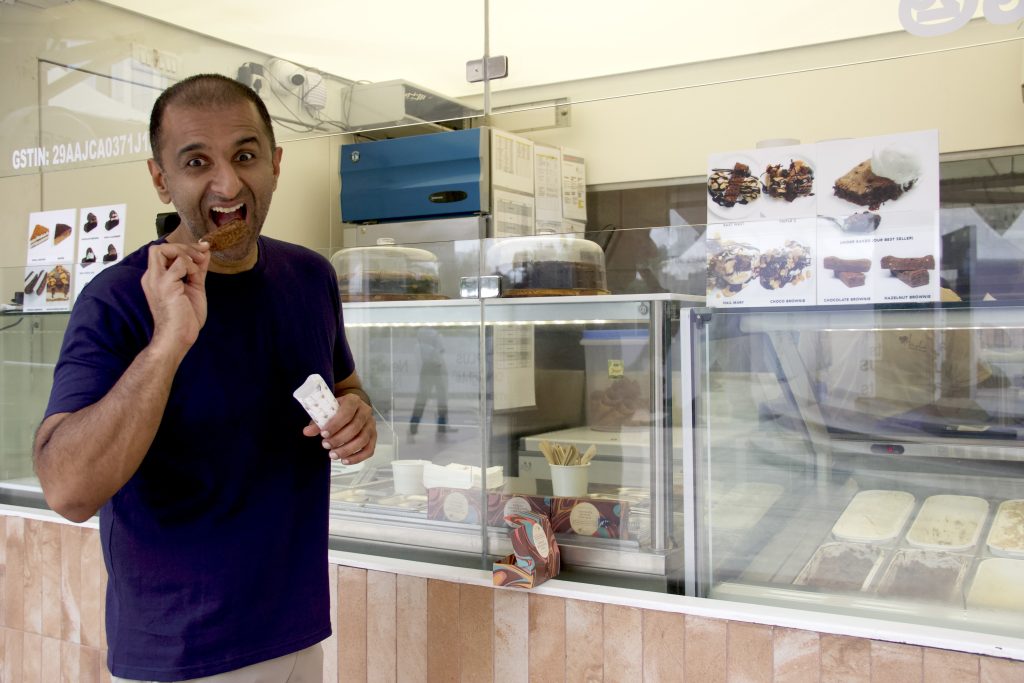
With three stores in Chennai and two in Bengaluru, with two more coming up in both cities and a store in Mumbai scheduled for mid-2024, Deepak has his hands full. He wants to, in the future, experiment with all the varieties of mango available across India in ice creams; he is already making use of the hapoos or Alphonso and the Banganpally mangoes.
Deepak admits, “I am lucky I do what I do, and seeing the joy on the face of my four-and-a-half-year-old son when he tries the ice cream, makes it so much more worthwhile.”
Ice creams and cakes, and an entrepreneur with a passion for creating their best possible avatars – a match made in heaven.


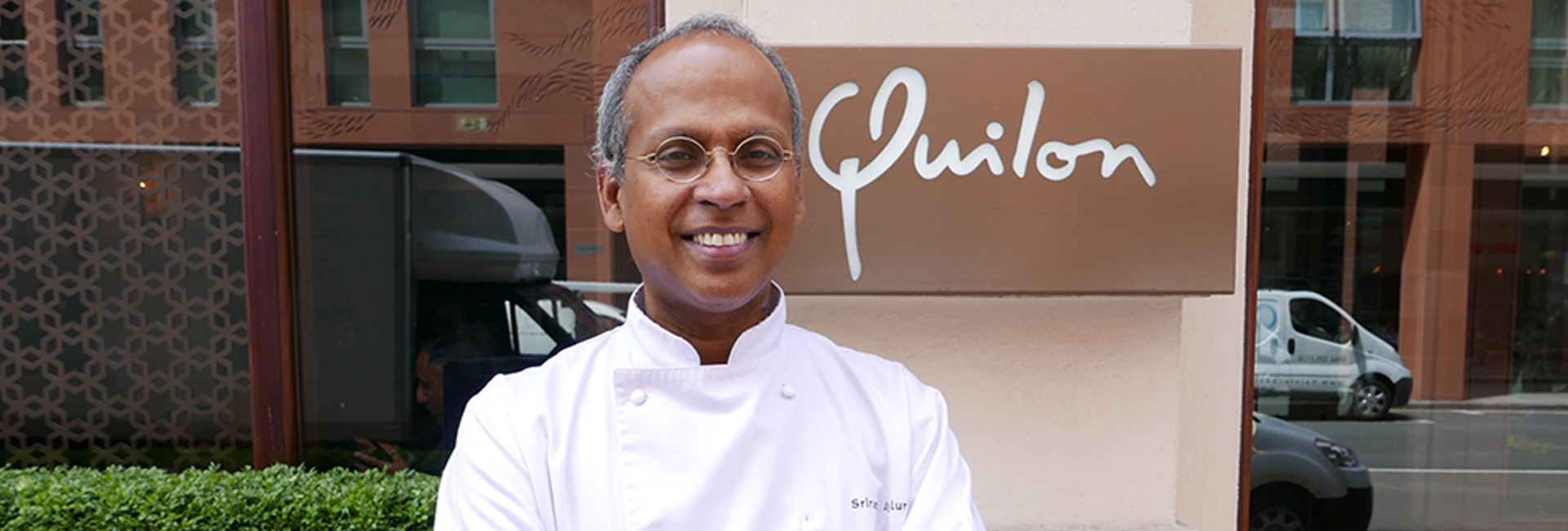
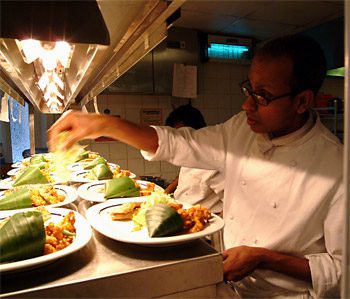 Sriram Aylur preparing food at his restaurant.[/caption]
Sriram Aylur preparing food at his restaurant.[/caption]
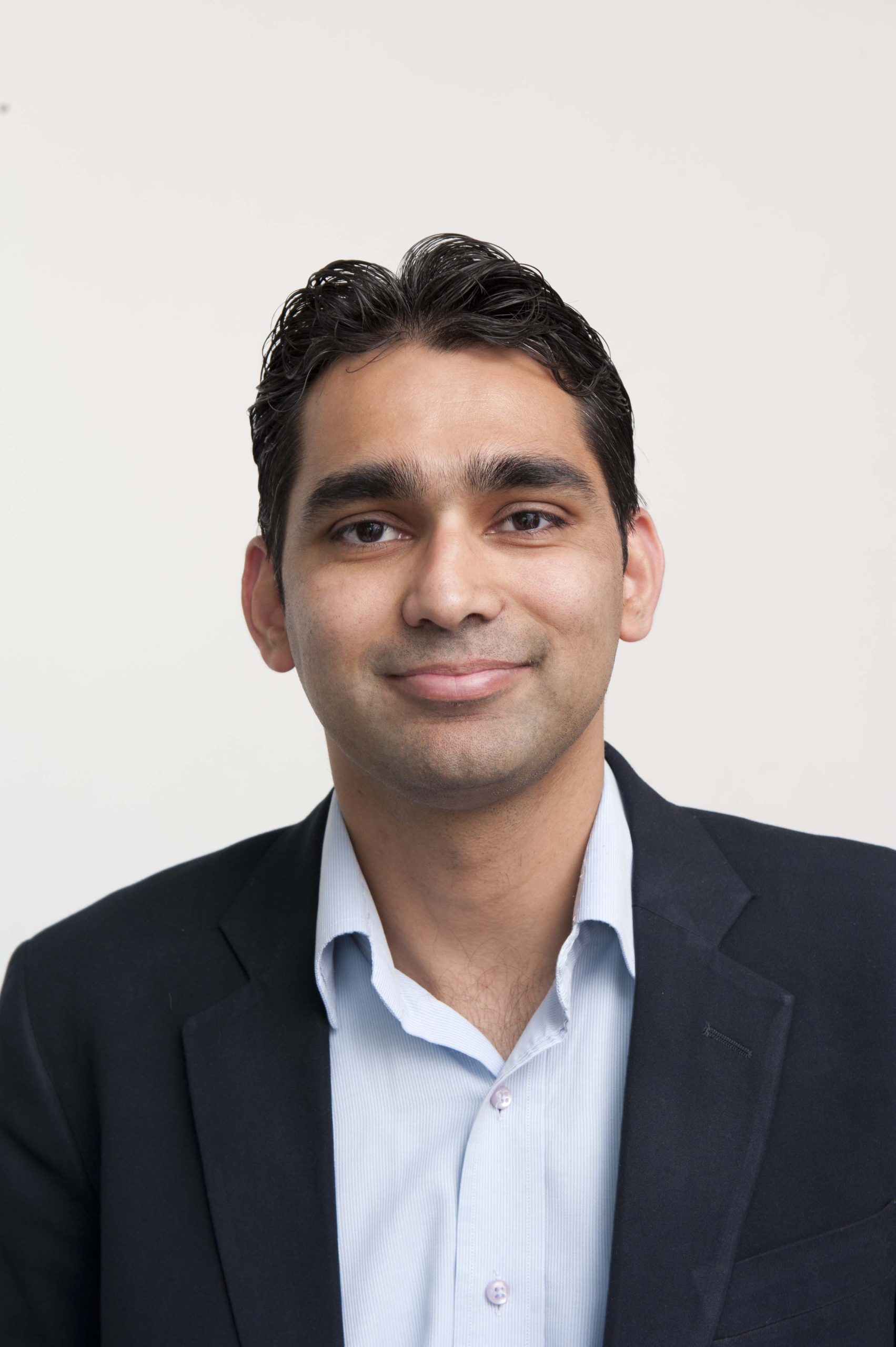 Gaurav Brahmbhatt[/caption]
Gaurav Brahmbhatt[/caption]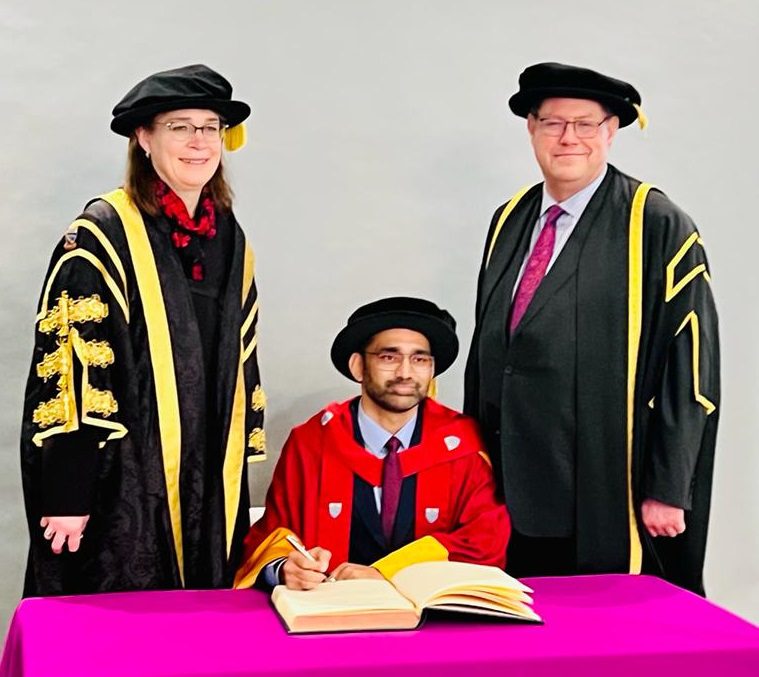 Gaurav receives his honorary degree from Aston University[/caption]
Gaurav receives his honorary degree from Aston University[/caption]
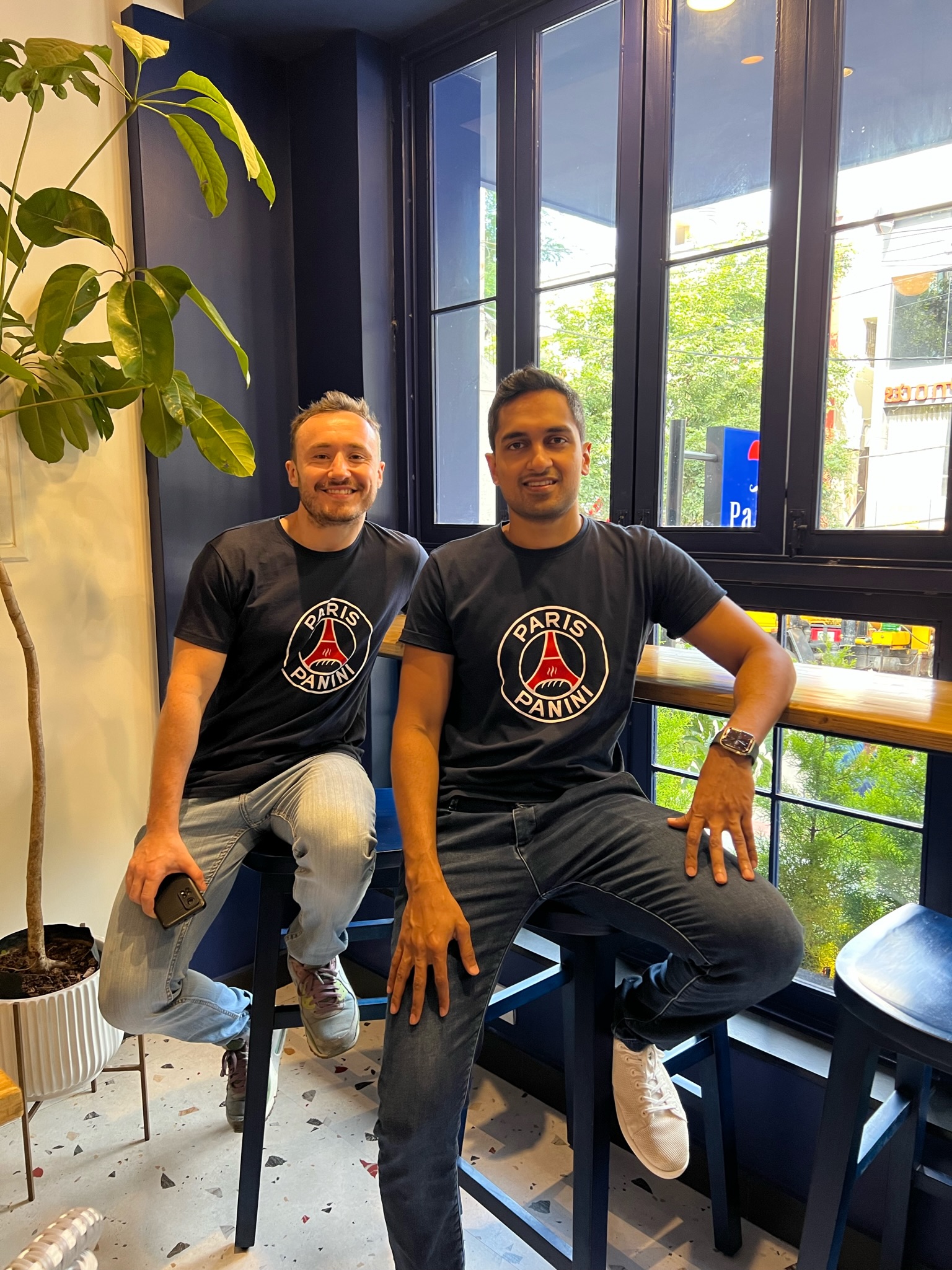 Nicolas Grossemy and Abhijit 'AB' Gupta[/caption]
Nicolas Grossemy and Abhijit 'AB' Gupta[/caption]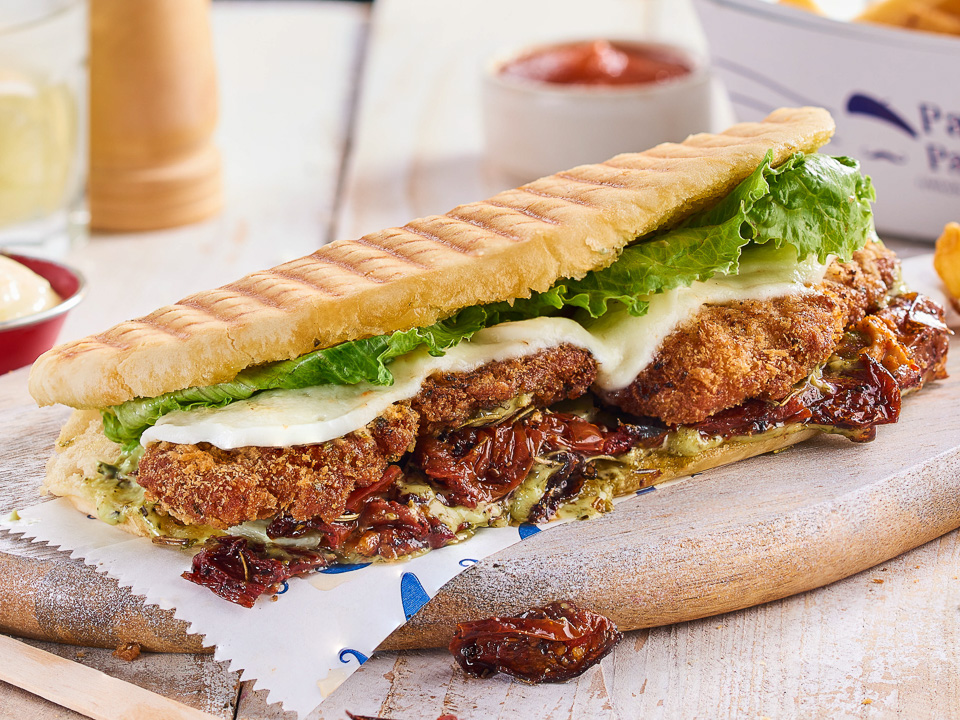 The 'Hugo' (fried chicken, fresh mozzarella, onions, sriracha aioli) at Paris Panini[/caption]
The 'Hugo' (fried chicken, fresh mozzarella, onions, sriracha aioli) at Paris Panini[/caption]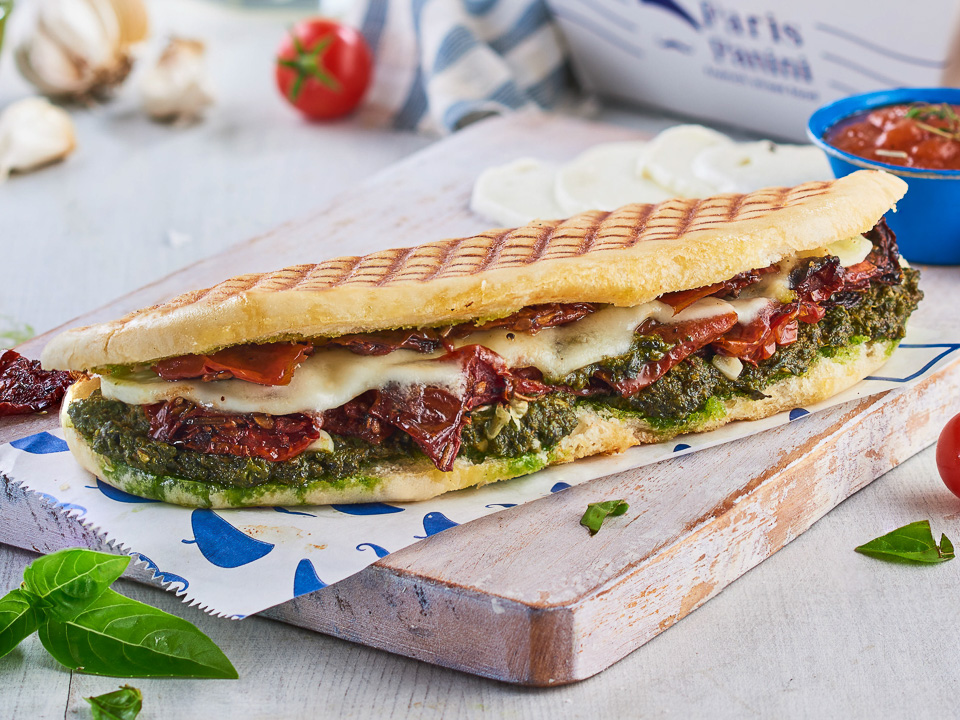 The Laura (Mozzarella, basil pesto, sun-dried tomatoes)[/caption]
The Laura (Mozzarella, basil pesto, sun-dried tomatoes)[/caption]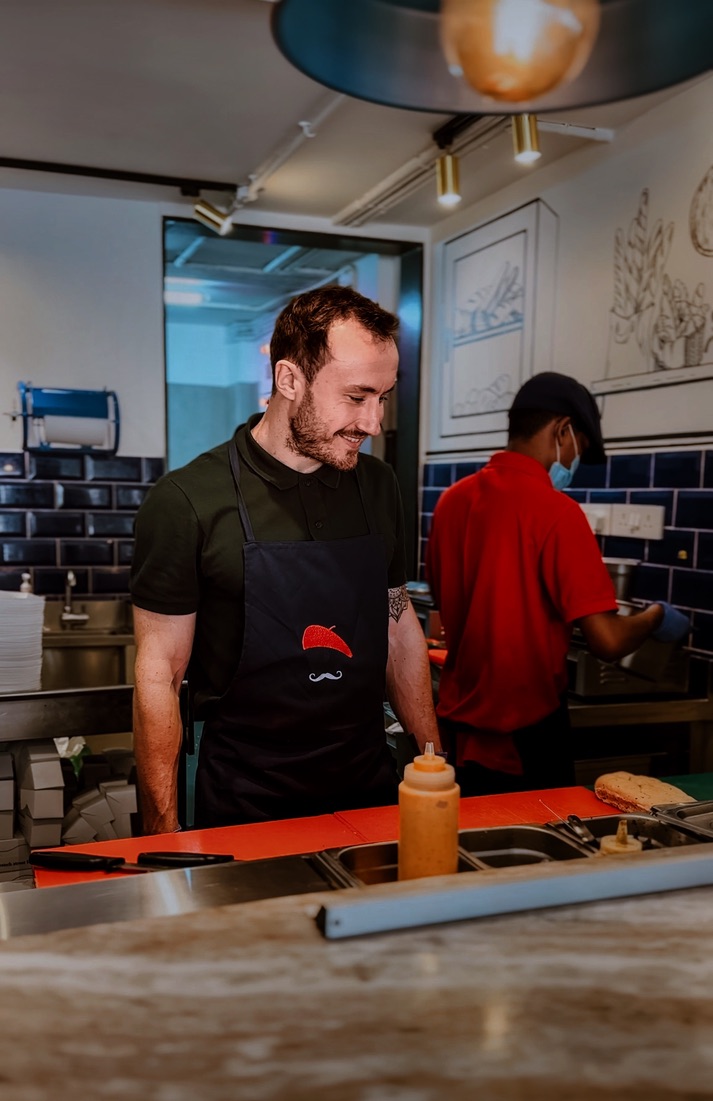

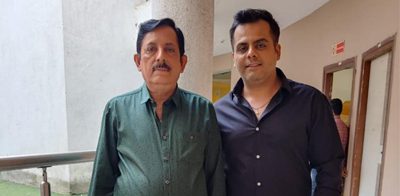 Sharad Ashani with his son, Gaurav[/caption]
Sharad Ashani with his son, Gaurav[/caption] Sharad Ashani with his wife and daughter[/caption]
Sharad Ashani with his wife and daughter[/caption]
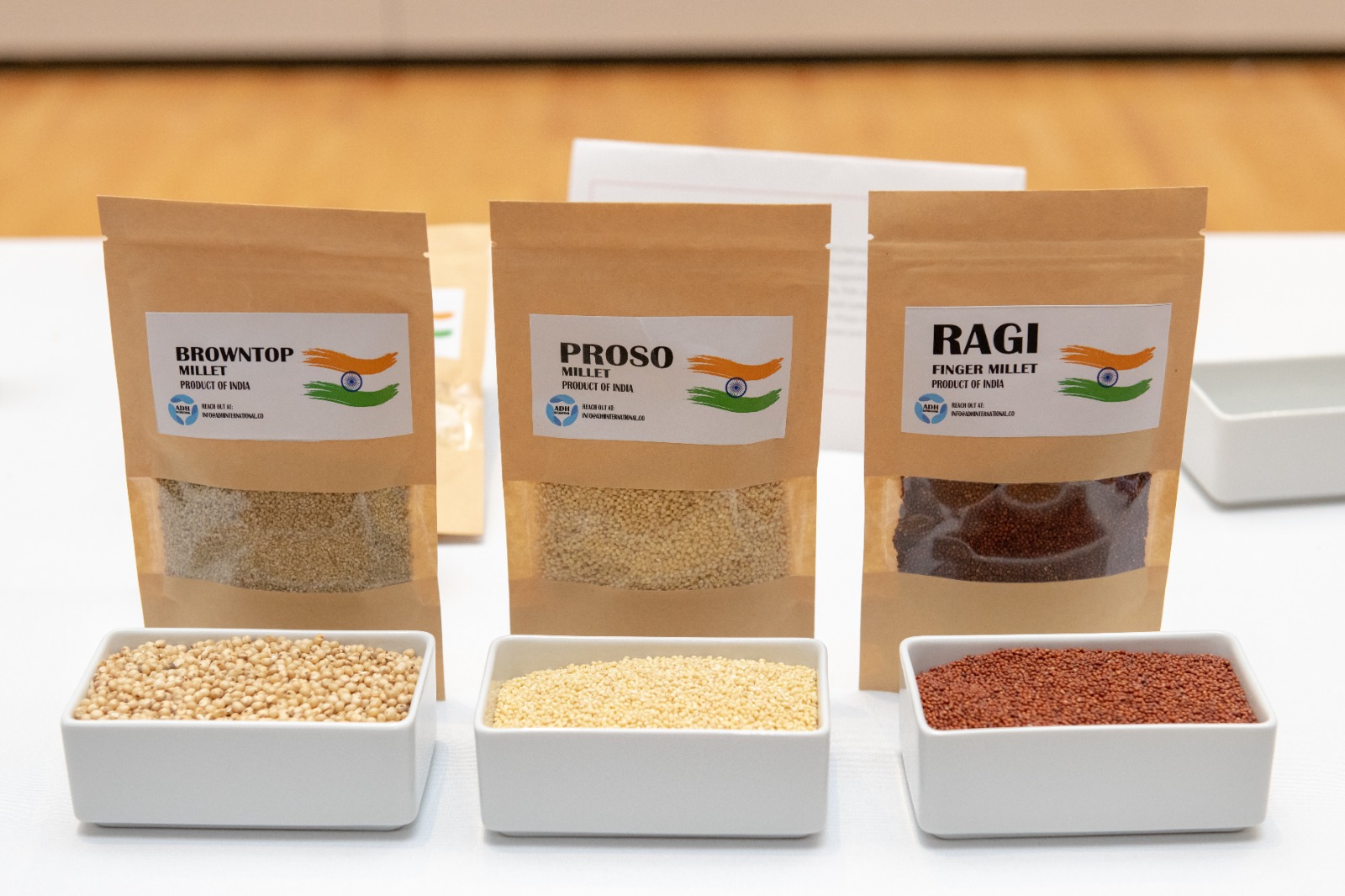 Photo Credit: Embassy of India, Vancouver[/caption]
Photo Credit: Embassy of India, Vancouver[/caption]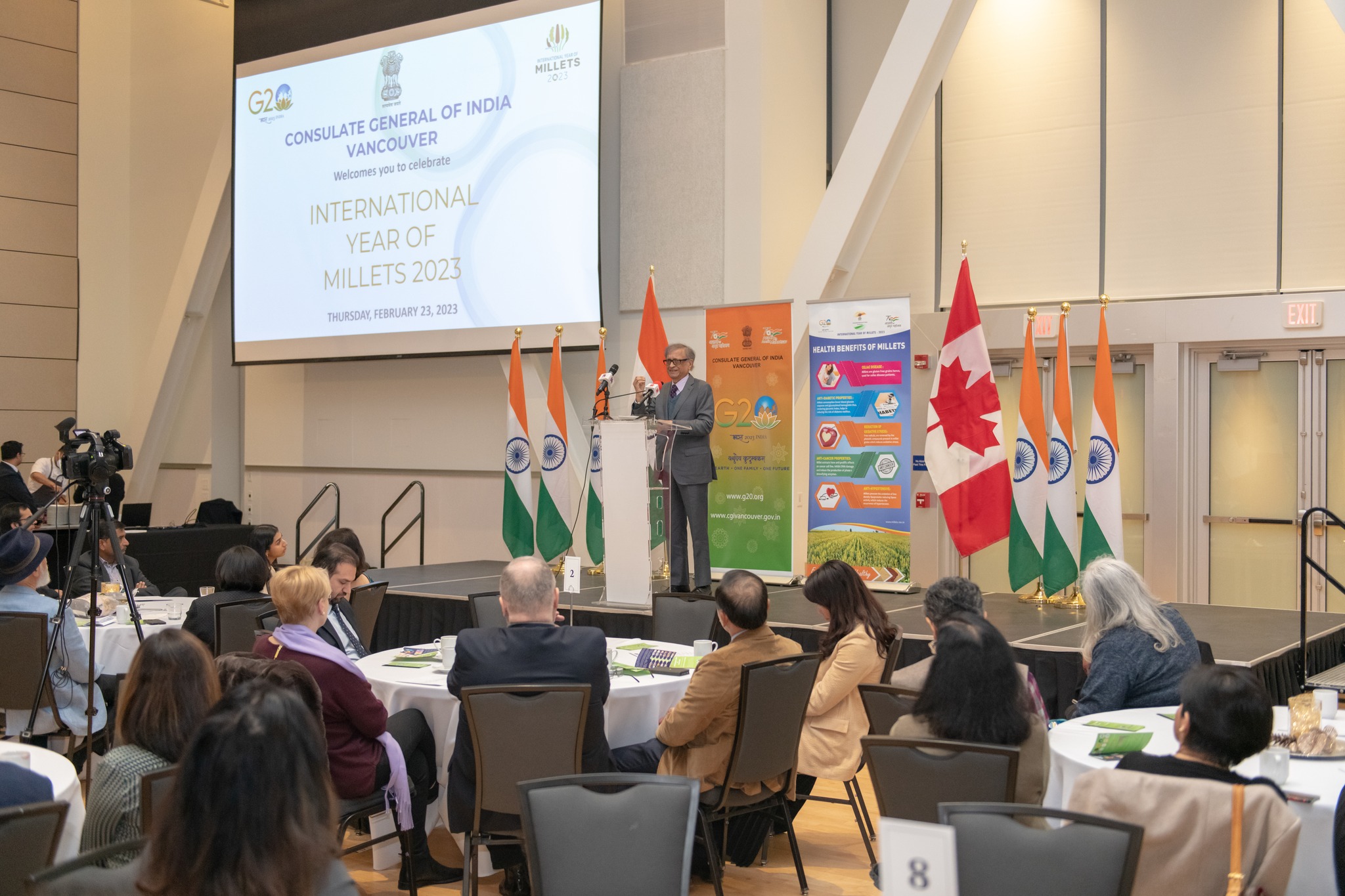 Photo Credit: Embassy of India, Vancouver[/caption]
Photo Credit: Embassy of India, Vancouver[/caption]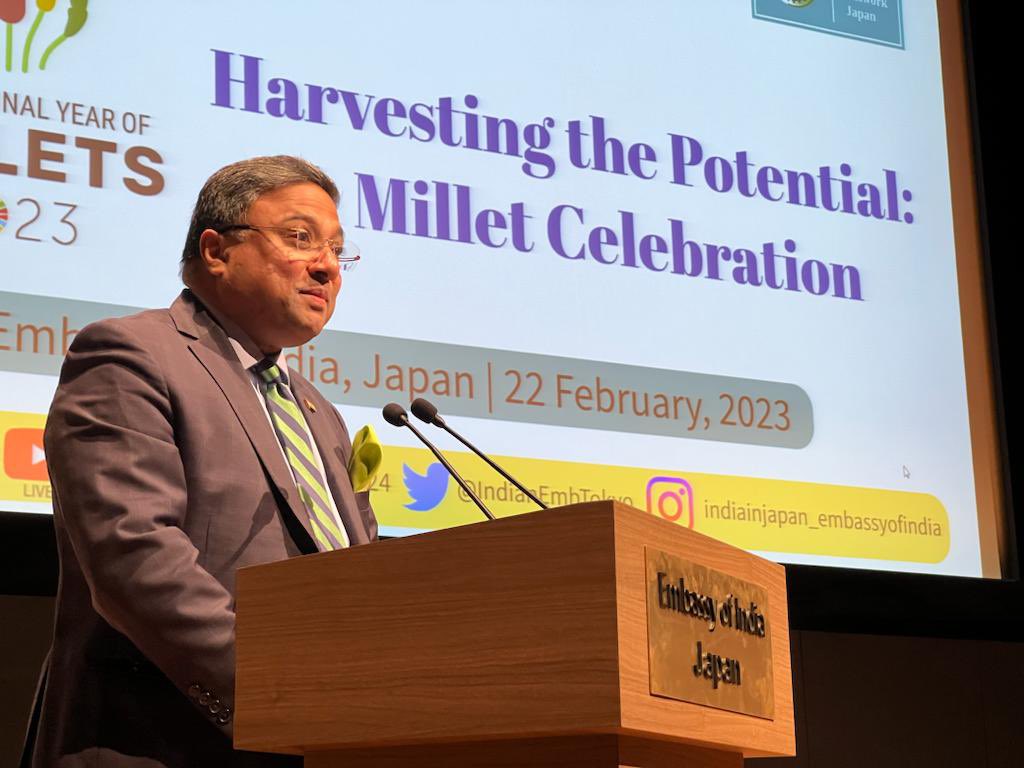 Photo Credit: Embassy of India, Tokyo[/caption]
Photo Credit: Embassy of India, Tokyo[/caption]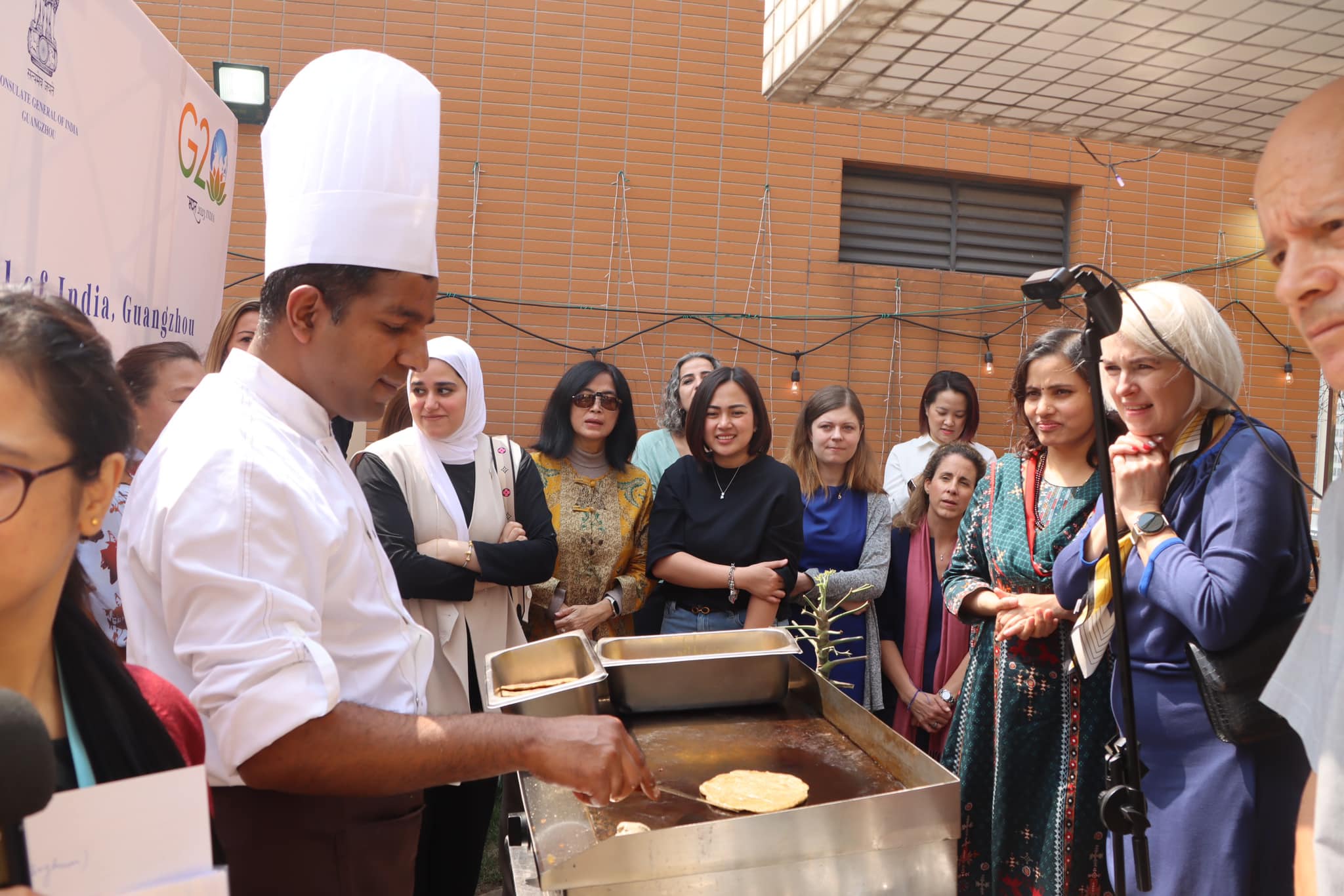 Photo Credit: Embassy of India,
Photo Credit: Embassy of India, 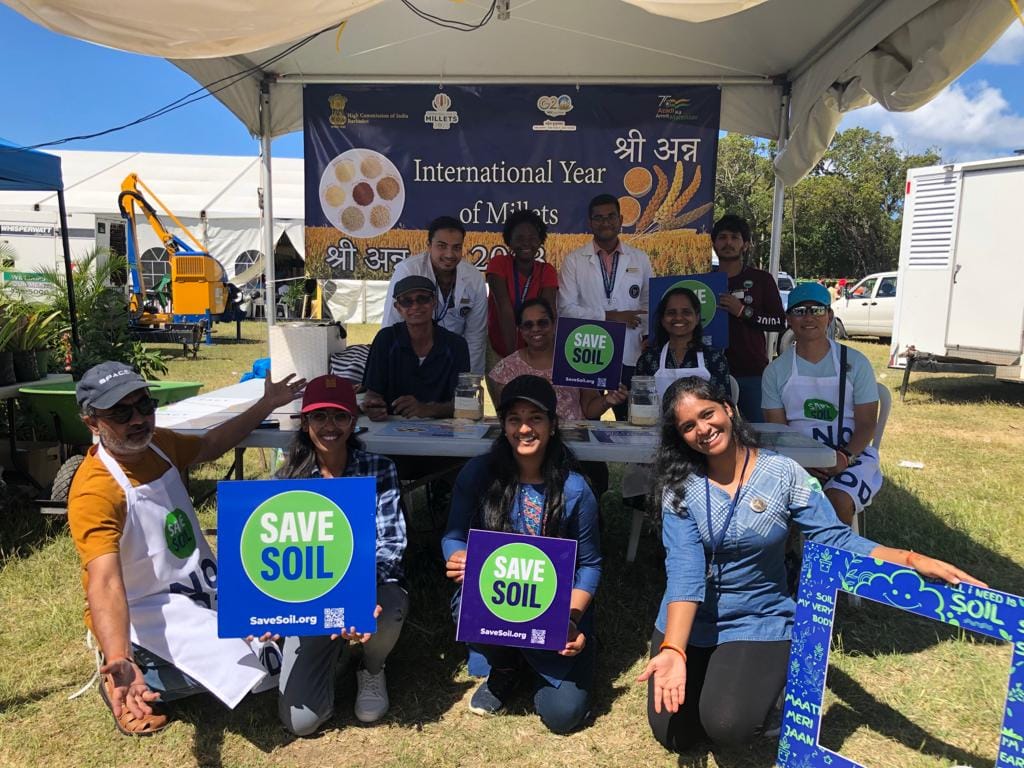 Photo Credit: Embassy of India, Paramaribo[/caption]
Photo Credit: Embassy of India, Paramaribo[/caption]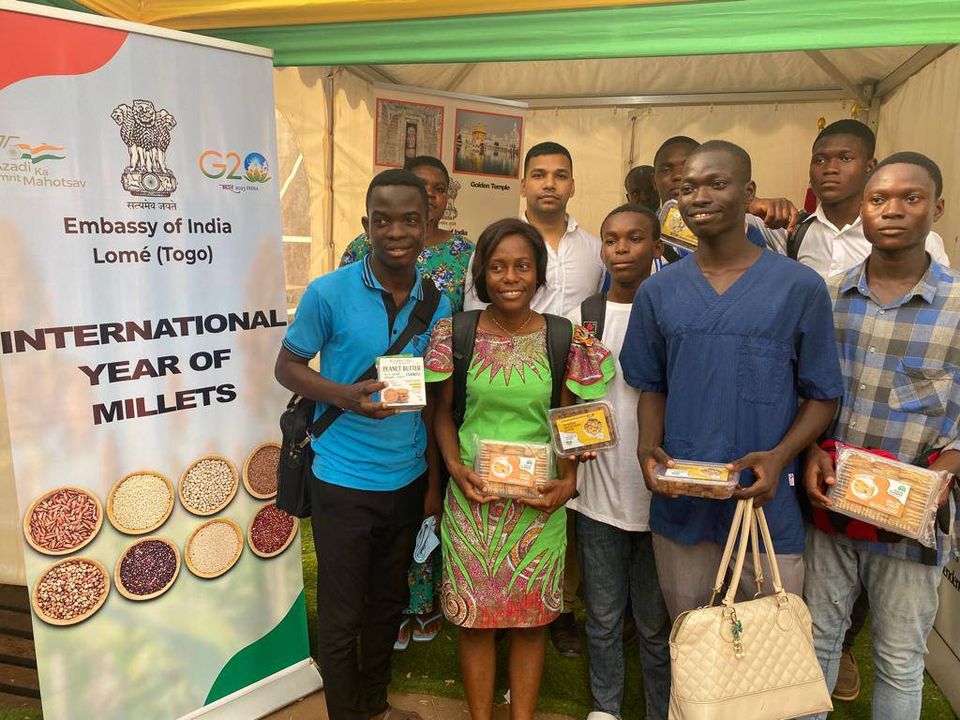 Photo Credit: Embassy of India, Lome[/caption]
Photo Credit: Embassy of India, Lome[/caption]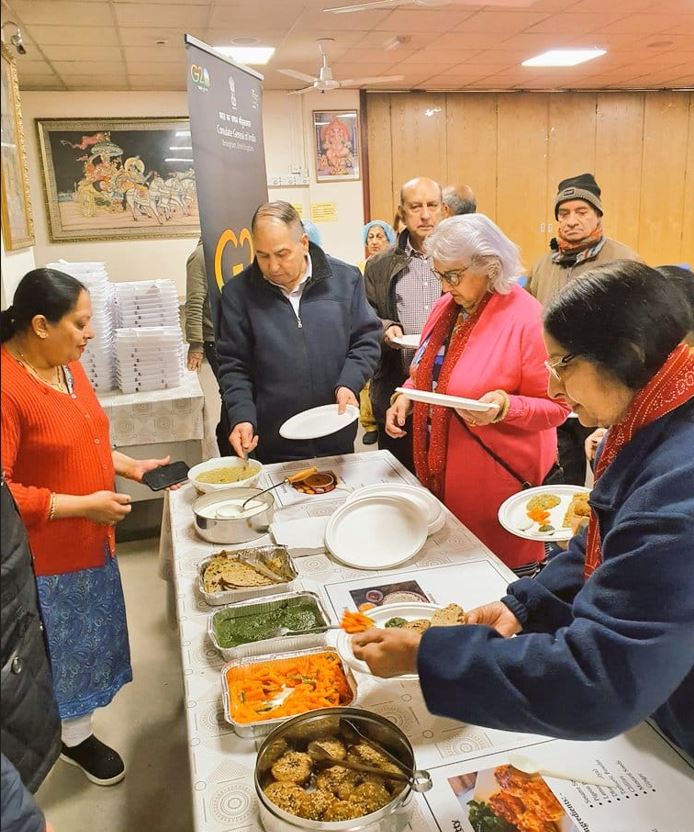 Photo Credit: Consulate General of India, Birmingham[/caption]
Photo Credit: Consulate General of India, Birmingham[/caption]